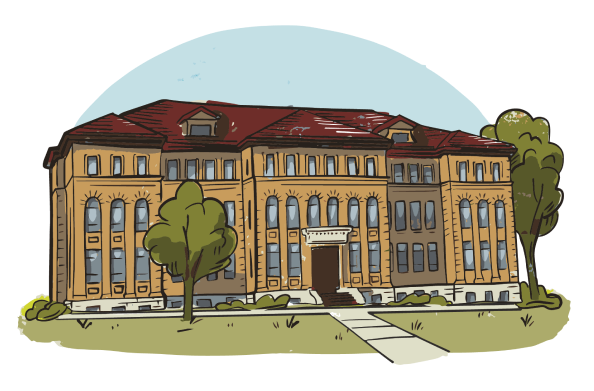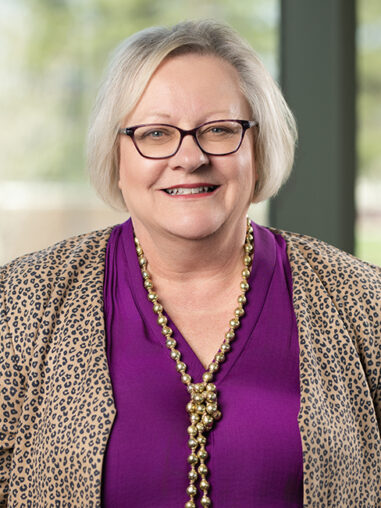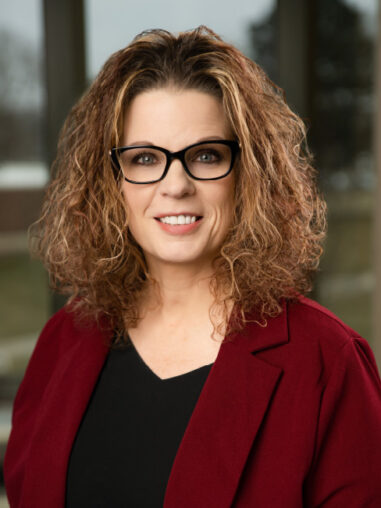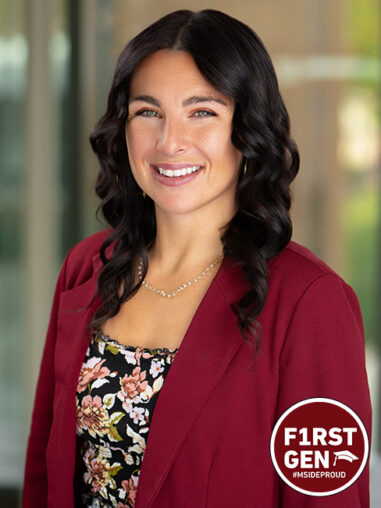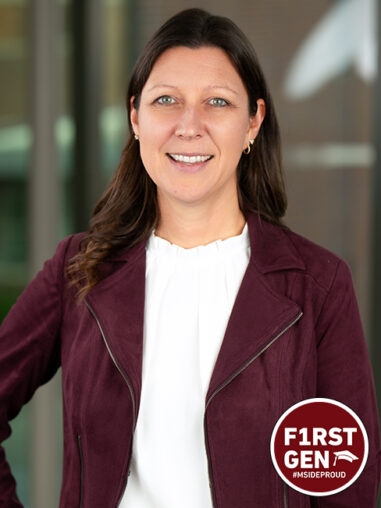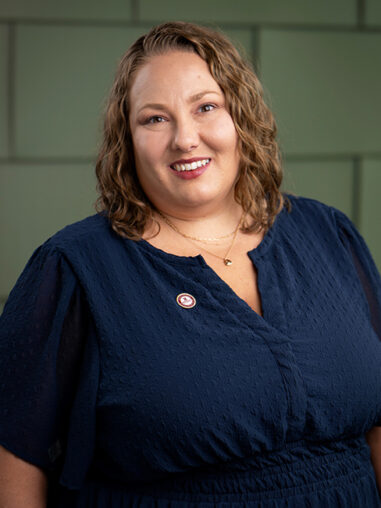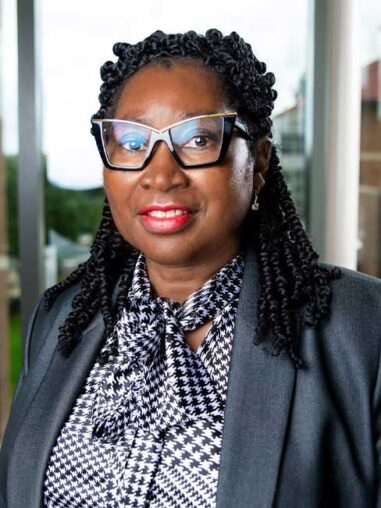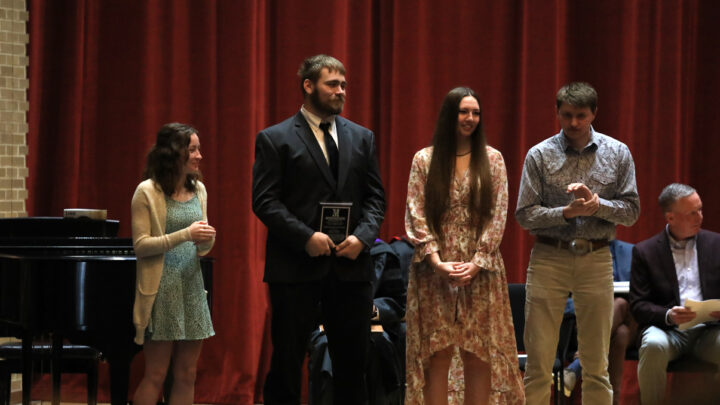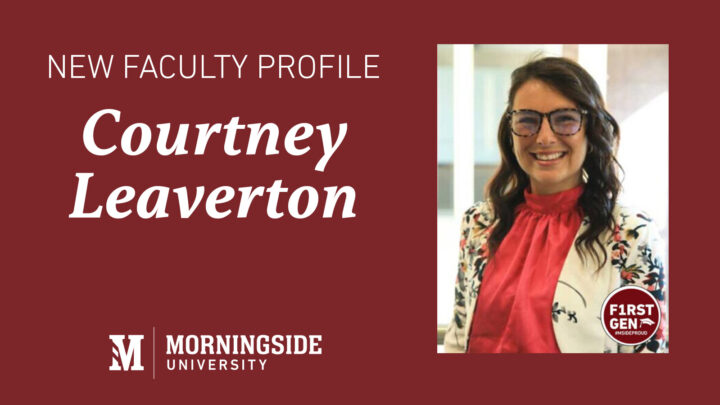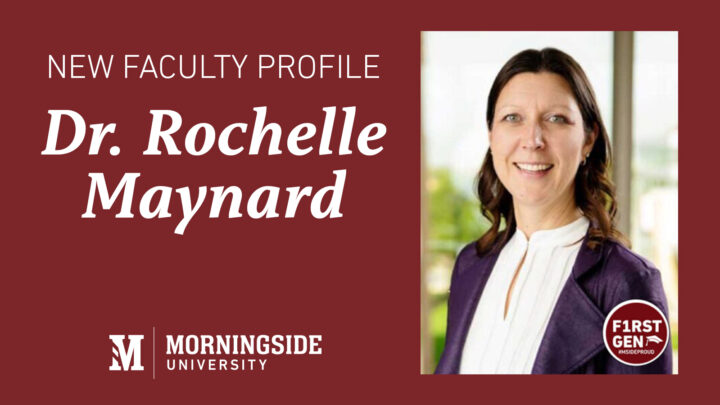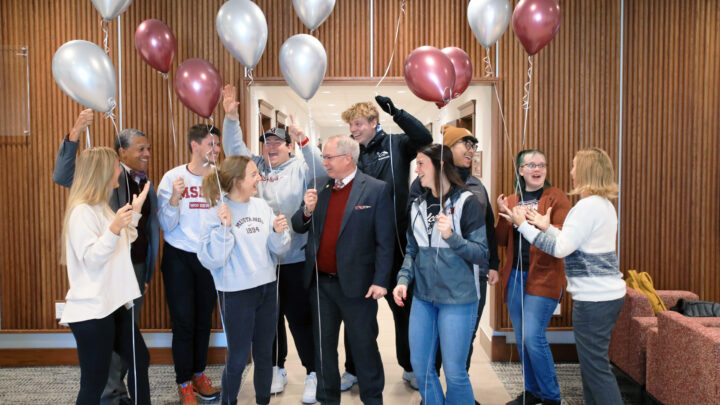
EMPOWERING THE LEADERS OF TOMORROW
The demand for students graduating from education programs continues to grow. While the need for highly qualified teachers spans all areas of teaching, the demand is especially high for teachers of Special Education, English as a Second Language, Spanish, Science, Math, Social Studies, and Agricultural Education. Schools need passionate, caring, well-prepared teachers to nurture and empower young learners to become the leaders of tomorrow.
Degrees
Elementary Education (B.S.)
Major
K-12 All Special Education (B.S)
Major
Agricultural Education (B.S.)
Major
All Sciences Teaching (B.S.)
Major
American Government/American History Teaching (B.A.)
Major
American History/World History Teaching (B.A.)
Major
Biology Teaching (B.A.)
Major
Chemistry Teaching (B.A.)
Major
English Teaching (B.A.)
Major
Mathematics Teaching (B.A.)
Major
Spanish Teaching (B.A.)
Major
Art Teaching (B.A.)
Major
Music Education (B.M.E)
Major
A Great Fit For
- Those hoping to educate, guide, and empower others.
- Natural motivators who enjoy encouraging people of all abilities and personalities.
- Active listeners who have a caring, empathetic nature.
- Problem-solvers who like helping others tackle challenges.
- Lifelong learners who want to make a difference in the lives of children and nurture future leaders.
THE MORNINGSIDE DIFFERENCE
Student Teaching
Student teaching immerses students in a classroom experience for a full semester. Student teachers gradually take on increasing responsibility, ultimately becoming the lead teacher in the classroom. A veteran teacher and a college supervisor support and coach student teachers throughout this 16-week opportunity.
Travel
You will have the opportunity to travel regionally, nationally, and even internationally for professional conferences, industry field trips, or May Term courses. Travel grants and special scholarship eligibility may be available.
Research & Active Learning
Practicum experiences provide diverse opportunities to observe, interact, and engage in classrooms throughout the program, providing 80 hours or more of classroom experiences prior to student teaching. This begins the first year on campus and continues throughout the program to sharpen teaching skills.
PLAN OF STUDY
Required Courses:
EDUC 101: Foundations of Education
EDUC 112: Characteristics of Learners
EDUC 214: The Teaching of Foundational Reading Skills
EDUC 228: Learning Through Movement and Fine Arts
EDUC 234: Educational Psychology
EDUC 300: Instructional Design and Assessment & Practicum
EDUC 309: Language Acquisition
EDUC 313: Middle School and Secondary Literacy II
or EDUC 465N Literacy for Grades 5-8
EDUC 315: Teaching Elementary Reading/Language Arts & Practicum
EDUC 317: Teaching Elementary Mathematics, Assessment & Practicum
EDUC 326: Teaching Elementary Social Studies and Content Literacy
EDUC 327: Teaching Elementary Science and Content Literacy
EDUC 331: Differentiated Instruction
EDUC 413: Advanced Methods and Practicum
EDUC 414: Diagnostic Teaching of Reading and Practicum
EDUC 417*: Elementary Student Teaching
EDUC 490*: Effective Educator Seminar
EDTE 364: Written Communication and Grammar for the Educator
EDTE 365: Oral Communication for the Educator
SPED 201: Introduction to Special Education
SPED 407: Diagnostic Teaching of Math
*Senior Capstone Experience
Required Support Courses:
ENGL 203: Children’s Literature
ENGL 204: Adolescent Literature
GEOG 215: Geography for the K-8 teacher
MATH 135: Mathematics for Classroom Teachers
MATH 136: Mathematics for Classroom Teachers II
PSYC 101: General Psychology
A biology course
A history course
A mathematics course
Physics courses (2 2-hour courses or 1 4-hour course)
Required Education Courses:
EDUC 101: Foundations of Education
EDUC 112: Characteristics of Learners
EDUC 214: The Teaching of Foundational Reading Skills
EDUC 234: Educational Psychology
EDUC 300: Instructional Design and Assessment and Practicum
EDUC 303: Middle School and Secondary Literacy I
EDUC 309: Language Acquisition
EDUC 315: Teaching Elementary Reading/Language Arts and Practicum
EDUC 318: Growth and Development of Middle Level Learners
EDUC 331: Differentiated Instruction
EDUC 413: Advanced Methods and Practicum
EDUC 414: Diagnostic Teaching of Reading and Practicum
EDUC 490*: Effective Educator Seminar
SPED 201: Introduction to Special Education
*Senior Capstone Experience
Required Special Education Courses:
SPED 340: Principles of Special Education and Practicum
SPED 345: Language Development and Communication Disorders
SPED 360: Introduction to Intellectual Disabilities
SPED 402: School-Parent Collaboration
SPED 407: Diagnostic Teaching of Math
SPED 431: Applied Behavior Analysis
SPED 440: K-12 Mild/Moderate Characteristics and Methods
SPED 451: Educational Assessment
SPED 455: Transition
SPED 461: Behavior Disorder Theory, Methods and Practicum
SPED 462: Learning Disabilities Theory, Methods and Practicum
SPED 475: Intellectual Disabilities Curriculum, Methods and Practicum
SPED 480*: K-12 All Special Education Student Teaching
*Senior Capstone Experience
Required Support Courses:
ENGL 203: Children’s Literature
GEOG 215: Geography for the K-8 Educator
MATH 135: Mathematics for Classroom Teachers
MATH 136: Mathematics for Classroom Teachers II
PSYC 101: General Psychology
A science course
A history course
Agricultural Content Courses:
AGED 202: Agricultural Mechanics Skills Development
AGRI/BIOL 203: Introduction to Plant Science
AGRI 206: Animal Science and Production
AGRI 234: Agricultural Economics
AGRI 271: History of Food & Agriculture
BIOL 317: Environmental Issues
or BIOL 308: Ecology
Required Support Courses:
BIOL 121: General Biology I
BIOL 122: General Biology II
CHEM 110: General, Organic and Biological Chemistry
Required Agricultural Education Courses:
AGED 201: Foundations of Agricultural Education
AGED 301: Experiential Learning/Leadership Devel. & Practicum in Ag Ed (SAE & FFA)
AGED 302: Teaching Agricultural Laboratories
AGED 401: Program Planning, Curriculum Coordination & Evaluation in Agricultural Education
Required Education Courses:
EDUC 112: Characteristics of Learners
EDUC 234: Educational Psychology
EDUC 331: Differentiated Instruction
EDUC 300: Instruc. Design, Assessment & Practicum
EDUC 303: Middle School and Secondary Literacy I
EDUC 411: Methods of Teaching Secondary Natural and Agricultural Science
EDUC 413: Advanced Methods & Practicum
EDUC 427*: Secondary Student Teaching
EDUC 490*: Effective Educator Seminar
SPED 201: Introduction to Special Education
*Senior Capstone Experience
Required Education Support Courses:
MATH 150: Elementary Probability and Statistics
PSYC 101: General Psychology
A humanities course (history, literature, modern language, philosophy, religion, or rhetoric)
Required Science Courses:
BIOL 121: General Biology I
BIOL 122: General Biology II
CHEM 121: General Chemistry I
CHEM 122: General Chemistry II
CHEM 201: Organic Chemistry I
or CHEM 305 Analytical Chemistry
PHYS 111: Geology
PHYS 112: Meteorology
PHYS 113: Astronomy: The Solar System
PHYS 114: Astronomy: Stars and Galaxies
PHYS 122: Energy and Environment
PHYS 201: General Physics I
PHYS 202: General Physics II
Complete 4 credits from the following:
BIOL 207: Human Anatomy
BIOL 208: Physiology for Allied Health
BIOL 252: Microbiology
BIOL 308: Ecology
BIOL 317: Environmental Issues
BIOL 321: General Physiology
BIOL 351: Genetics
Complete 2 credits from the following:
PHYS 103: Light and Color
PHYS 104: Exploring Physics
PHYS 115: Sound and Music
PHYS 116: Batteries and Bulbs
Required Support Courses:
MATH 150: Elementary Probability and Statistics
or MATH 205: Calculus and Analytic Geometry I
Required Education Courses:
EDUC 101: Foundations of Education
EDUC 112: Characteristics of Learners
EDUC 234: Educational Psychology
EDUC 300: Instructional Design and Assessment& Practicum
EDUC 303: Middle School & Secondary Literacy I
EDUC 321: Methods of Teaching in Secondary Schools & Practicum
EDUC 331: Differentiated Instruction
EDUC 411: Methods of Teaching Secondary Natural and Agricultural Sciences
EDUC 413: Advanced Methods and Practicum
EDUC 427*: Secondary Student Teaching
EDUC 490*: Effective Educator Seminar
SPED 201: Introduction to Special Education
*Senior Capstone Experience
Required Education Support Courses:
PSYC 101: General Psychology
A humanities courses (history, literature, modern language, philosophy, religion, or rhetoric)
Required History/Political Science Courses:
HIST 225: United States History to 1877
HIST 226: United States History since 1877
POLS 147: United States Government
POLS 440*: Political Science Capstone Seminar
Complete 12 credits in United States Politics from the following:
POLS 277: Introduction to United States Law
POLS 321: United States Food Policy
POLS 330: US State & Local Politics & Policy
POLS 356: The American Revolution
POLS 362: Congress and the Presidency (RS)
POLS 366: Women in United States Politics
POLS 422: United States Constitution: Institutions, Politics, and Processes
POLS 426: United States Constitution: Civil Rights and Liberties
POLS 459: United States Foreign Relations
Complete 8 credits in American History from the following:
HIST 361: Civil War in America
HIST 252: US and the World, Since 1945
HIST 337: The Vietnam Wars (RS)
Required Education Courses:
EDUC 101: Foundations of Education
EDUC 112: Characteristics of Learners
EDUC 234: Educational Psychology
EDUC 300: Instructional Design and Assessment & Practicum
EDUC 303: Middle School & Secondary Literacy I
EDUC 321: Methods of Teaching Secondary Schools & Practicum
EDUC 331: Differentiated Instruction
EDUC 413: Advanced Methods and Practicum
EDUC 425: Methods of Teaching Social Science & Practicum
EDUC 427*: Secondary Student Teaching
EDUC 490*: Effective Educator Seminar
SPED 201: Introduction to Special Education
*Senior Capstone Experience
Required Education Support Courses:
PSYC 101: General Psychology
A science course (biology, chemistry, or physics)
A mathematics course
Required Biology Courses:
BIOL 121: General Biology I
BIOL 122: General Biology II
BIOL 308: Ecology
BIOL 321: General Physiology
BIOL 351: Genetics
BIOL 460: Capstone Seminar
Biology Electives (any BIOL course except 208)
Required Support Courses:
CHEM 121: General Chemistry II
Required Education Courses:
EDUC 101: Foundations of Education
EDUC 112: Characteristics of Learners
EDUC 234: Educational Psychology
EDUC 300: Instructional Design and Assessment & Practicum
EDUC 303: Middle School & Secondary Literacy I
EDUC 321: Methods of Teaching in Secondary Schools & Practicum
EDUC 331: Differentiated Instruction
EDUC 411: Methods of Teaching Secondary Natural and Agricultural Sciences
EDUC 413: Advanced Methods and Practicum
EDUC 427*: Secondary Student Teaching
EDUC 490*: Effective Educator Seminar
SPED 201: Introduction to Special Education
*Senior Capstone Experience
Required Education Support Courses:
PSYC 101: General Psychology
A mathematics course
A humanities courses (history, literature, modern language, philosophy, religion, or rhetoric)
Required Chemistry Courses:
CHEM 121: General Chemistry I
CHEM 122: General Chemistry II
CHEM 201: Organic Chemistry I
CHEM 202: Organic Chemistry II
CHEM 305: Analytical Chemistry
CHEM 320: Physical Chemistry
CHEM 410: Biochemistry
Required Support Courses:
MATH 205: Calculus and Analytic Geometry I
PHYS 201: General Physics I
PHYS 202: General Physics II
Required Education Courses:
EDUC 101: Foundations of Education
EDUC 112: Characteristics of Learners
EDUC 234: Educational Psychology
EDUC 300: Instructional Design and Assessment & Practicum
EDUC 303: Middle School & Secondary Literacy I
EDUC 321: Methods of Teaching in Secondary Schools & Practicum
EDUC 331: Differentiated Instruction
EDUC 411: Methods of Teaching Secondary Natural and Agricultural Sciences
EDUC 413: Advanced Methods and Practicum
EDUC 427*: Secondary Student Teaching
EDUC 490*: Effective Educator Seminar
SPED 201: Introduction to Special Education
*Senior Capstone Experience
Required Education Support Courses:
PSYC 101: General Psychology
A humanities courses (history, literature, modern language, philosophy, religion, or rhetoric)
Required English Courses:
ENGL 204: Adolescent Literature
ENGL 231: Language and Grammar
ENGL 295: Intro to Literary Analysis & Theory
ENGL 343: Studies of American Literary History
ENGL 344: Studies of British Literary History
ENGL 354: Teaching of Writing
ENGL 495*: Capstone Seminar in English
Complete 4 credits from the following:
CWRT 210: Creative Nonfiction
CWRT 281: Writing Poetry and Fiction
ENGL/RHET 211: Writing to Persuade
Complete 4 credits from the following:
ENGL 241: Classical Mythology and Literature
ENGL 243: Multicultural Literature
ENGL 245: Gender Representation in Literature
ENGL 251: Literature and Pop Culture
Complete 4 credits from the following:
ENGL 345: Literature, Writing, & Empathy
ENGL 346: Studies of a Major Genre, Literary Figure or Movement
ENGL 347: From Page to Stage or Screen: Studies of Literature in Performance
Required Education Courses:
EDUC 101: Foundations of Education
EDUC 112: Characteristics of Learners
EDUC 234: Educational Psychology
EDUC 300: Instructional Design and Assessment & Practicum
EDUC 303: Middle School & Secondary Literacy I
EDUC 321: Methods of Teaching in Secondary Schools & Practicum
EDUC 331: Differentiated Instruction
EDUC 412: Methods of Teaching Secondary Language Arts
EDUC 413: Advanced Methods and Practicum
EDUC 427*: Secondary Student Teaching
EDUC 490*: Effective Educator Seminar
SPED 201: Introduction to Special Education
*Senior Capstone Experience
Required Education Support Courses:
PSYC 101: General Psychology
A science course (biology, chemistry, or physics)
2-4 A mathematics course
Required Mathematics Courses:
MATH 150: Elementary Probability and Statistics
MATH 205: Calculus and Analytic Geometry I
MATH 206: Calculus and Analytic Geometry II
MATH 207: Multivariable Calculus and Differential Equations
MATH 300: Transition to Abstract Mathematics
MATH 315: Modern Algebra I
MATH 325: Modern Geometries
MATH 335: Real Analysis I
MATH 400*: Mathematics Capstone
*Senior Capstone Experience
Required Support Course:
CSCI 160: Crafting Web Pages
Required Education Courses:
EDUC 101: Foundations of Education
EDUC 112: Characteristics of Learners
EDUC 234: Educational Psychology
EDUC 300: Instructional Design and Assessment & Practicum
EDUC 303: Middle School & Secondary Literacy I
EDUC 321: Methods of Teaching in Secondary Schools & Practicum
EDUC 331: Differentiated Instruction
EDUC 406: Methods of Teaching Secondary Mathematics
EDUC 413: Advanced Methods and Practicum
EDUC 427*: Secondary Student Teaching
EDUC 490*: Effective Educator Seminar
SPED 201: Introduction to Special Education
*Senior Capstone Experience
Required Education Support Courses:
PSYC 101: General Psychology
A science course (biology, chemistry, or physics)
A humanities course (history, literature, modern language, philosophy, religion, or rhetoric)
Required Spanish Courses:
SPAN 103: Language and Culture I
SPAN 104: Language and Culture II
SPAN 203: Intercultural Competence through Language I
SPAN 204: Intercultural Competence through Language II
SPAN 307: Communication for Leadership in the Professions
SPAN 320: Spanish on the Big Screen
SPAN 412: Latin America in Transition
SPAN 445: Word and Image in Latin America
Required Education Courses:
EDUC 101: Foundations of Education
EDUC 112: Characteristics of Learners
EDUC 234: Educational Psychology
EDUC 300: Instructional Design and Assessment & Practicum
EDUC 303: Middle School & Secondary Literacy I
EDUC 321: Methods of Teaching in Secondary Schools & Practicum
EDUC 331: Differentiated Instruction
EDUC 404: Methods of Teaching Spanish
EDUC 413: Advanced Methods and Practicum
EDUC 427*: Secondary Student Teaching
EDUC 490*: Effective Educator Seminar
SPED 201: Introduction to Special Education
*Senior Capstone Experience
Required Education Support Courses:
PSYC 101: General Psychology
A science course (biology, chemistry, or physics)
A mathematics course
Required Art Courses:
ART 103: Design
ART 105: Drawing
ART 201: Ancient to Gothic Art History
ART 202: Renaissance to Modern Art History
ART 225: Painting
ART 235: Ceramics
ART 245: Stamp Carving and Stencils
or ART 246: Etching and Engraving
ART 255: Sculpture
ART 306: Figure Drawing
ART 381: Elementary Art Methods & Practicum
ART 383: Secondary Art Methods & Practicum
ART 490*: Senior Art Seminar
*Senior Capstone Experience
Required Education Courses:
EDUC 101: Foundations of Education
EDUC 112: Characteristics of Learners
EDUC 234: Educational Psychology
EDUC 300: Instructional Design and Assessment & Practicum
EDUC 303: Middle School & Secondary Literacy I
EDUC 321: Methods of Teaching in Secondary Schools & Practicum
EDUC 331: Differentiated Instruction
EDUC 413: Advanced Methods and Practicum
EDUC 477: Elementary Art Student Teaching
EDUC 478: Secondary Art Student Teaching
EDUC 490*: Effective Educator Seminar
SPED 201: Introduction to Special Education
*Senior Capstone Experience
Required Education Support Courses:
PSYC 101: General Psychology
A mathematics course
A science course (biology, chemistry, or physics)
A humanities courses (history, literature, modern language, philosophy, religion, or rhetoric)
Required Music Courses:
MUAL 2XX: Primary Applied Lessons (4 semesters, 1 credit each)
MUAL 4XX: Primary Applied Lessons (3 semesters, 1 credit each)
MUAL 421: Full Recital Seminar
MUEN: Music Ensembles (as assigned by the music faculty)
MUHL 215: World Music
MUHL 401: Music History I
MUHL 402: Music History II
MUSC 202: Recital Attendance (6 semesters required)
MUSC 203: Piano Proficiency via MUAL 16X – Applied Piano/Class Piano
MUSC 204: Sophomore Interview
MUSC 207: Secondary Instrument Proficiency
MUSC 222: Introduction to Conducting
MUSC 323: Conducting-Instrumental (Instrumental Only)
MUSC 324: Conducting-Choral (Choral Only)
MUTC 132: Music Theory and Ear Training I
MUTC 133: Music Theory and Ear Training II
MUTC 232: Music Theory and Ear Training III
MUTC 233: Music Theory and Ear Training IV
Required Music Education Courses:
MUAL 2XX: Secondary Applied Lessons (Instr. Only)
MUED 101: Foundations of Music Education
MUED 209: Vocal Pedagogy I
MUED 219: Instrumental Pedagogy Overview (Choral only)
MUED 305: Music Education Seminar and Practicum: Music In the Elementary School
MUED 306: Music Education Seminar & Practicum: Music in the Secondary School
MUED 415: Choral Methods (ALL MUED Majors)
MUED 416:. Instrumental Methods (ALL MUED Majors)
MUED 440/443*: Student Teaching-Elementary Vocal/Instrumental
MUED 442/444*: Student Teaching-Secondary Vocal/Instrumental
*Senior Capstone Experience
Required Education Courses:
EDUC 112: Characteristics of Learners
EDUC 234: Educational Psychology
EDUC 300: Instructional Design and Assessment & Practicum
EDUC 303: Middle School & Secondary Literacy I
EDUC 331: Differentiated Instruction
EDUC 490*: Effective Educator Seminar
PSYC 101: General Psychology
SPED 201: Introduction to Special Education
A science course (biology, chemistry, or physics)
A mathematics course
A humanities course (history, literature, modern language, philosophy, religion, or rhetoric)
6 Credits from the Following:
MUED 210: Vocal Pedagogy II
MUED 315: Show/Jazz Choir Methods & Practicum
MUHL 391: Choral Literature
MUSC 313: Diction for Singers I: English and German
MUED 215: Pedagogy of Brass
MUED 216: Pedagogy of Woodwinds
MUED 217: Pedagogy of Strings
MUED 218: Pedagogy of Percussion
MUHL 371: Instrumental Literature
MUED 316: Marching Band Methods & Practicum
MUED 317: Jazz Band Methods & Practicum
WHY STUDY AT MORNINGSIDE?
13:1
student/faculty ratio so you’re assured a quality education focused on you
99%
employed or in graduate school within six months of graduation
65+
majors & pre-professional programs available
Related Majors & Minors
Still looking for the right fit? Check out some additional program options that we think might interest you or are often paired with this program. You can also view the programs page to keep exploring your options.
Explore Related Programs
MEET THE FACULTY & STAFF
News
Next Steps
Visit
See for yourself all that Morningside has to offer.
Financial Aid
Financial aid is available. Learn how you can qualify.
Apply Now
Take the next step towards building your future.
Contact Us
Our admissions team is eager to answer your questions about this program and how to apply.
